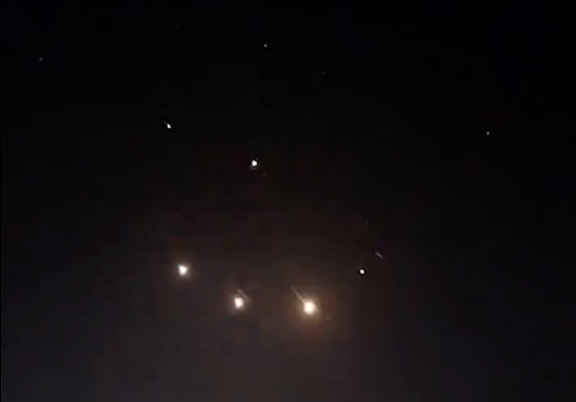Iran launched a massive drone and missile attack on Israel, marking a dramatic escalation in the long-standing tensions between the two nations. The unprecedented move by Tehran has brought the shadow war between Iran and Israel into the open, raising concerns about the potential for a full-blown regional conflict.

The attack, which took place on the night of April 13, 2024, lasted for several hours and involved the firing of around 300 drones and missiles at various Israeli military and strategic sites.
The Iranian military claimed that the operation was in retaliation for a suspected Israeli strike on the Iranian consulate in Syria, which resulted in the deaths of two generals and five officers of the Iranian Revolutionary Guard Corps.
Israel and its allies neutralize most of the incoming drones and missiles
U.S. forces in Iraq and Syria and American warships in the region were part of the effort to counter the Iranian offensive. U.S. defense forces played a crucial role in helping Israel take down nearly all of the incoming drones and missiles, according to a statement from the White House. The U.S. has reaffirmed its “ironclad commitment to the security of Israel” and has been monitoring the situation to ensure the safety of its personnel and allies in the region.
The attack comes at a time of heightened tensions in the Middle East, with the ongoing conflict between Israel and Hamas in the Gaza Strip contributing to a volatile atmosphere. The situation has been further complicated by Iran’s role in supporting Palestinian resistance groups, which has been a point of contention between Tehran and Tel Aviv.
International Community calls for de-escalation
In the wake of the attack, there have been widespread calls for restraint and de-escalation from the international community, including Israel’s ally, the United States.
The United Nations Security Council is set to meet to discuss the situation, and world leaders urged both Iran and Israel to exercise restraint and engage in dialogue to prevent further escalation.
The recent developments have raised fears of a wider regional conflict, with experts warning that the situation could spiral out of control.